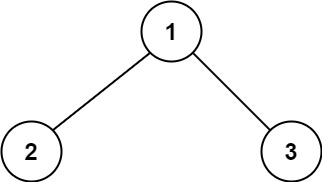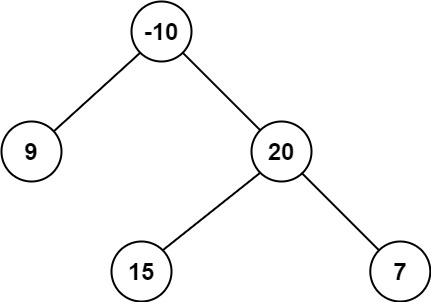LeetCode-in-All
124. Binary Tree Maximum Path Sum
Hard
A path in a binary tree is a sequence of nodes where each pair of adjacent nodes in the sequence has an edge connecting them. A node can only appear in the sequence at most once. Note that the path does not need to pass through the root.
The path sum of a path is the sum of the node’s values in the path.
Given the root of a binary tree, return the maximum path sum of any non-empty path.
Example 1:

Input: root = [1,2,3]
Output: 6
Explanation: The optimal path is 2 -> 1 -> 3 with a path sum of 2 + 1 + 3 = 6.
Example 2:

Input: root = [-10,9,20,null,null,15,7]
Output: 42
Explanation: The optimal path is 15 -> 20 -> 7 with a path sum of 15 + 20 + 7 = 42.
Constraints:
- The number of nodes in the tree is in the range
[1, 3 * 104]. -1000 <= Node.val <= 1000
Solution
# Definition for a binary tree node.
# class TreeNode
# attr_accessor :val, :left, :right
# def initialize(val = 0, left = nil, right = nil)
# @val = val
# @left = left
# @right = right
# end
# end
# @param {TreeNode} root
# @return {Integer}
def max_path_sum(root)
@max = -Float::INFINITY
helper_max(root)
@max
end
private
def helper_max(root)
return 0 if root.nil?
# To avoid negative values on the left side, compare them with 0
left = [0, helper_max(root.left)].max
right = [0, helper_max(root.right)].max
current = root.val + left + right
@max = [current, @max].max
root.val + [left, right].max
end

